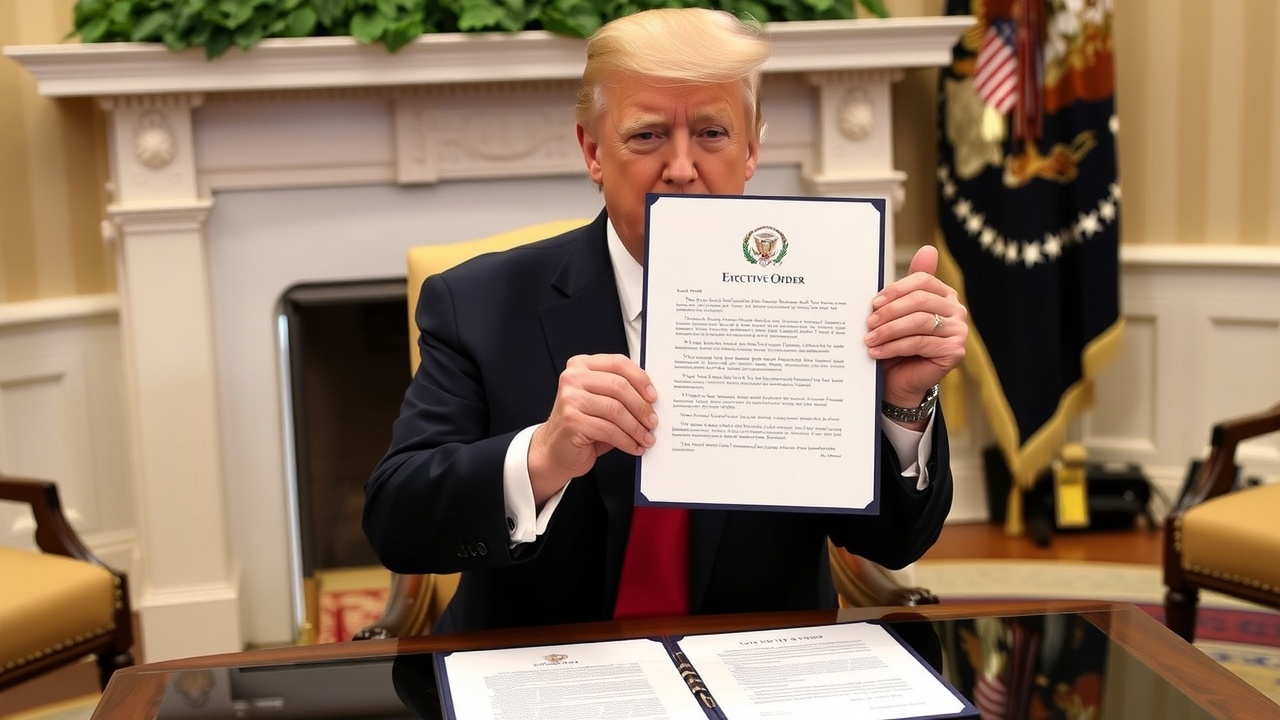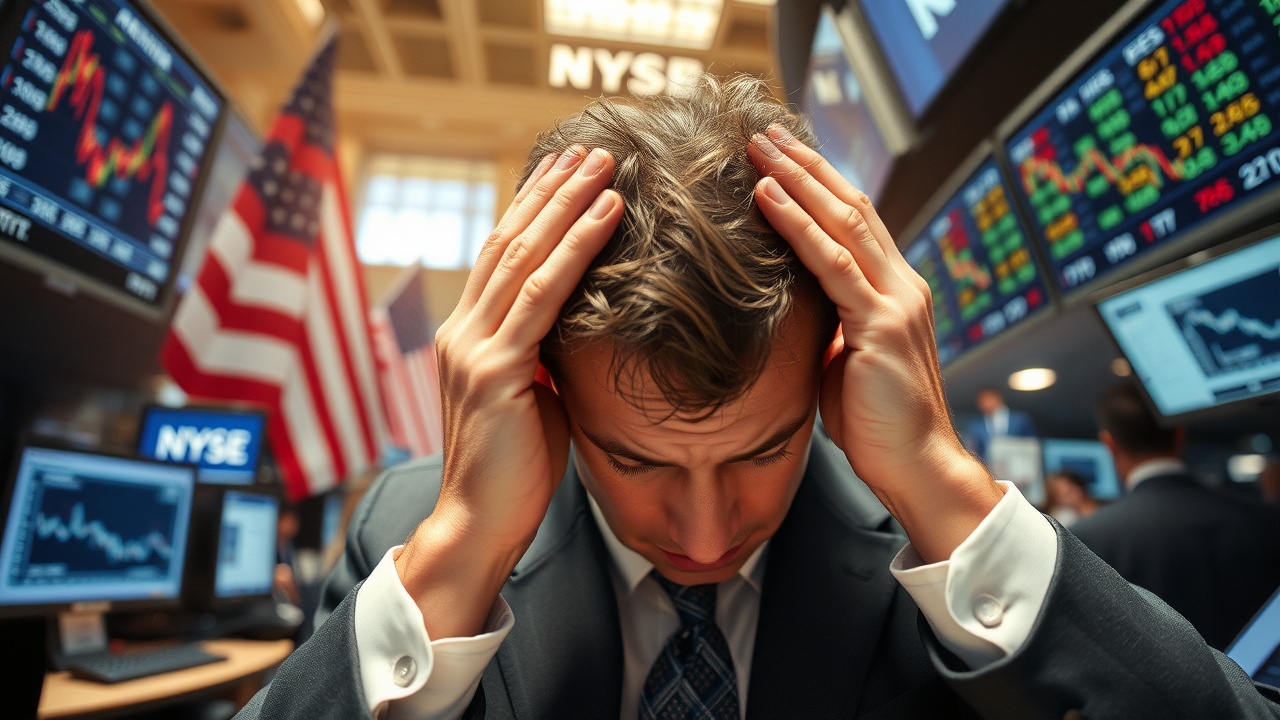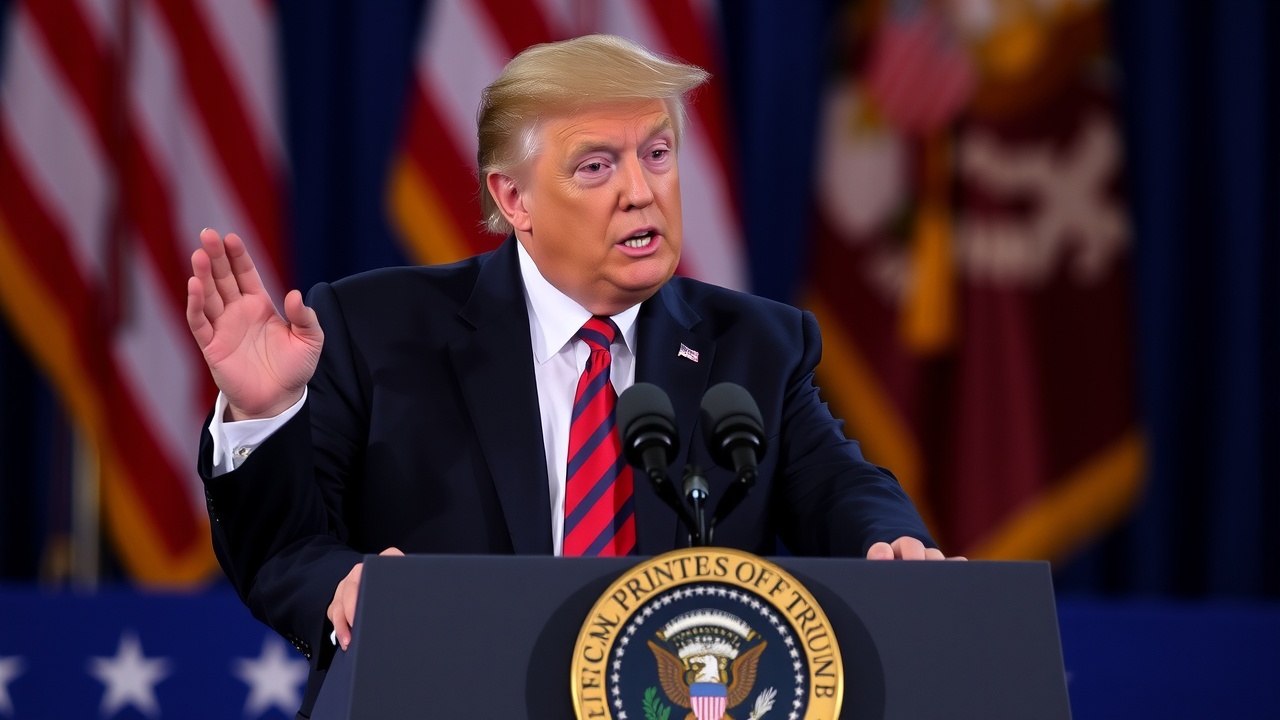
The arrival of Donald Trump's "Liberation Day" is expected to cause a market meltdown
How can tariffs affect your wealth?
A slew of tariffs on US imports are expected to be imposed today, and Donald Trump's Liberation Day is expected to completely upend the current global trade order.
When tariff day comes around, you'll want to know how to safeguard your investments and savings from the effects of a worldwide backlash. That's easier said than done, and many experts may argue that rather than trying to actively navigate what is sure to be a very turbulent time, it's better to take a long-term approach.
Some top stocks, funds, and trusts, however, are thought by experts to provide some relief from the worst effects.
According to Chelsea Financial Services managing director Darius McDermott, "investors need to engage with their portfolios a little more to make sure they are not caught out" in light of the tariff uncertainty. He goes on to say, "Using safe haven assets in conjunction with long-term, thematic investing can help investors take advantage of the upside without bearing too much of the downside in this complex macroeconomic environment."
Experts predict that tariffs may raise global inflation, which would raise interest rates and other related indicators, such as mortgage rates.
Stock markets have already been impacted: investors' worries about the effects of tariffs were a major factor in the S&P 500's 4.6 percent decline in Q1 2025, which ended a five-quarter winning streak. Investors may have moved to protect their portfolios from tariffs and their effects, which is what caused the stock selloff.
For expert advice on how to best incorporate tariff protection into your portfolio, continue reading.
Think about risks and long-term goals when implementing tariff hedges.
The majority of experts advise adhering to fundamental investing principles despite the short-term volatility that a tariff day is likely to cause.
AAF Financial's managing director and chartered financial planner, Finn Houlihan, tells BFIA that "even though these tariffs are extreme, they shouldn't be seen as a unique or insurmountable problem for financial planning clients." "Investment plans can be sufficiently diversified to shield customers from tariff-related market volatility.
According to Raymond Backreedy, chief investment officer at Sparrows Capital, "one should remain invested and allocate according to the strategic asset allocation that best suits the end investor's risk appetite, drawdown, and tolerance for loss." "We place a strong emphasis on a globally diversified multi-asset portfolio, with listed stocks serving as the primary return and risk drivers and premium global sovereign short- to mid-duration bonds serving as defensive assets.
Investments and trusts to shield your holdings from tariffs.
Diversification and a long-term perspective are important, but there are also some tactical moves that may be worthwhile.
UK and Europe.
For instance, McDermott suggests examining British or European funds to determine their worth.
According to him, "innovation is booming and a number of funds are harnessing this trend," despite the typical chorus of pessimists with a US focus complaining about the lack of vigor in the European economy. The Liontrust European Dynamic fund is recommended by him as a way to get access to "resilient, high-growth businesses."
Funds like VT Downing Unique Opportunities and Schroder British Opportunities, he continues, are ideally positioned to find Britain's small- and mid-cap "hidden gems."
According to McDermott, "despite all the pessimism regarding the UK economy, there might be a genuine chance for re-rating, if you know where to look."
Interactive Investor senior investment analyst Alex Watts prefers the JPM UK Equity Core Fund as "a core option for gaining active exposure to UK equities" and the Fidelity Special Values Trust for its "all of market approach to finding out-of-favor UK equities."
Worldwide diversification.
You should make sure that your portfolio is as diversified as possible because the only thing that is certain about Trump's tariff regime is uncertainty.
This is true for different asset classes, but it also holds true for different regions within stocks.
Morgan Stanley Global Brands is cited by McDermott as a source of international recognition.
According to him, the fund "offers exposure to world-class companies with serious pricing powerthe kind of companies that weather storms and keep customers coming back, recession or not."
Defensive resources (gold and bonds).
"Investors will need some ballast in their portfolios, and bonds can do just that; Trump is the ringmaster of daily volatility," McDermott says. As an illustration, Invesco Bond Income Plus protects against erratic market fluctuations while generating consistent income streams.
Despite the uncertainty, gold prices have risen because of the metal's reputation as a safe-haven investment.
Susannah Streeter, head of money and markets at Hargreaves Lansdown, states that "gold is still hovering near record levels after a glittering run upwards, as investors seek out safer havens for their money."
Purchasing a gold ETF is one of several ways to invest in gold.
As an alternative, McDermott chooses the Jupiter Gold & Silver fund to expose himself to both gold and silver.














Leave a comment on: How the "Liberation Day" tariffs will affect your portfolio